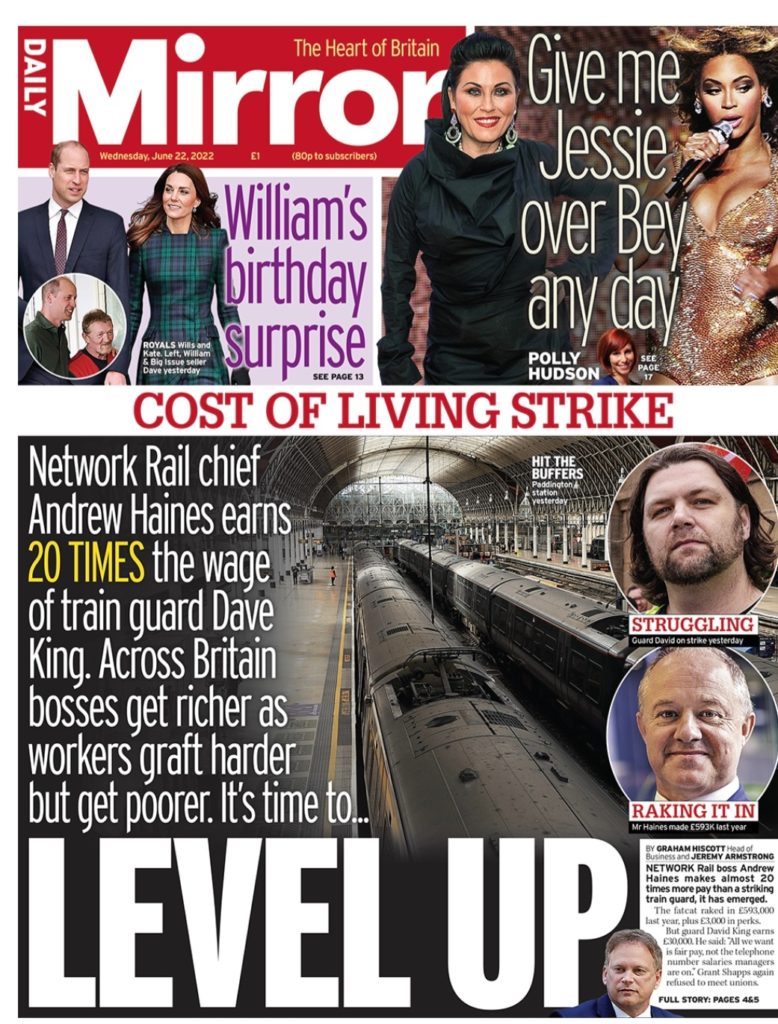By Mark Langabeer, Hastings and Rye Labour Member
A centre page feature of the Daily Mirror last week highlighted the daily struggle of working class people to survive and it makes a refreshing change to see real life portrayed so honestly.
In the Mirror feature, Darren Lewis interviewed a number of families in Hackney, including a woman who said that her weekly shop for groceries had risen from £45 to £54. A father of two reported that his monthly electric bill had risen from £55 to £122. A 31-year-old had moved back to his parents’ home because rents in the area are unaffordable, at around £1,500 a month.
Another mum of two told the Mirror that the council were offering some people a property outside the borough and that if you refused to take it, they will claim that you are making yourself homeless. She added that a lot of parents, including herself, suffer from depression.
Lewis also interviewed a refuse collector who said that a lot of people are going to food banks now and a lot of schools are providing free school meals. Hackney council, we read, is facing a revolt of bin collectors because their pay offer – of less than 2% – is nowhere near the 10% they need to get by.
An NHS worker interviewed made the point that that the lowest-paid NHS staff were earning only around £10 an hour and a lot are claiming working tax credits just to pay their rent. This NHS worker said that any idea of buying a house was ridiculous for those on Universal or Tax Credit.
Quantitative Easing meant printing hundreds of billions
Alongside this Mirror article was a comment by an economist, Gary Stevenson, who wrote that in the past three years, the Bank of England has printed £450bn, which the Government has effectively given out to finance houses and banks, representing almost £10,000 per adult of the population. With that money, the Government could increase support to ordinary families by 5,000%.

He noted that the richest in society has never had it so good. The Sunday Times Rich List in 2020 showed that the wealth of the richest 250 families increased by £107bn, with the average billionaire increased their wealth by over 22% and he correctly argued that the rich should not benefit at the expense of people having to go without proper nourishment or heating their homes. He argued instead that further hardship for ordinary people could be avoided by additional taxes on the very richest. Yet the Tories have increased National Insurance, further reducing the living standards of the working class.
Although I would support taxing the rich, I’d ask, would it solve the cost of living crisis? Personally, I don’t think so. The source of real wealth is the production of goods and services that is created by the labour of working people. Printing money will inevitably lead to inflation if there is no corresponding increase in production of real wealth. Higher productivity of labour is dependent on increasing investment.
The nub of the problem is that the bosses will only increase investment, if they can profit from it and that is the reason why we are witnessing an increase in property and share values, which benefits the richest most. It is speculative investment and does nothing to increase real wealth.
Virtually all economists are agreed that a worldwide recession is looming, with Britain being one of the nations most affected. They only differ on whether it we be a so-called soft or hard landing, a recession or a 1930s-style slump.
Mirror backing the rail workers
Exchange controls would also be required because the rich would be heading for the door if they were required to pay their fair share of taxes. By all means, tax the rich, but taking over the source of their wealth is the key to solving falling living standards. In my opinion, public ownership of the principal banks and the largest companies and a plan of production will be required to prevent further increases in inflation.
It was also noteworthy that the Daily Mirror backed the TUC march and rally last Saturday which called for a real living wage, ending zero hours contracts and fire and rehire. Its editorial also backed the rail strike and the prospect of a national postal strike. It is a paper that ultimately defends capitalism, but its readership is predominately the more class conscious sections of the working class.
It is also notable that Lisa Nandy, Labour right-winger and Shadow Cabinet member (as well as other MPs), have broken ranks with Starmer and come out in favour of the rail workers, no doubt with an eye for a future leadership challenge. These are indications of the pressure that is building inside and outside of the labour movement. The Tories are on the ropes. The Labour and trade union movement has the power to deliver a knockout.



